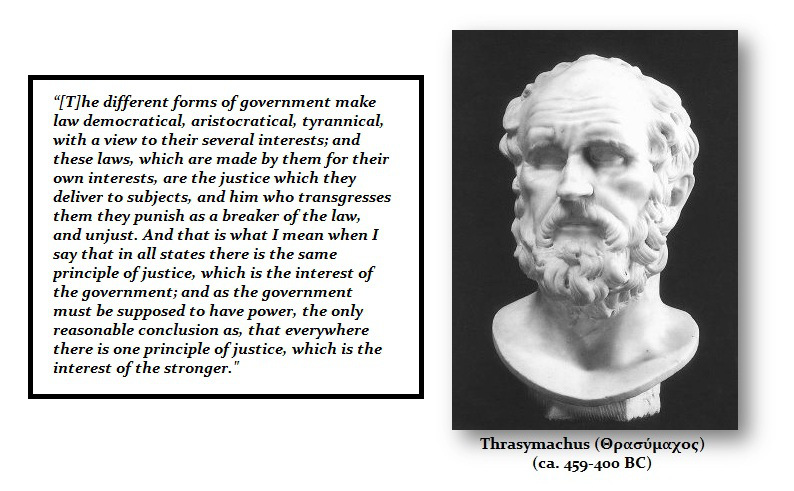


Thus if we do injury to a given thing's essence, we may be said to do injury to the virtue of a given thing or being.
Socrates quotes about breaking habits in teh republic series#
Socrates descries a single like aspect in the series of analogies he argues: a horse, a dog, a horseman, a musician - all may be said individually to possess a distinct essence or virtue or quality. In arguing things apparently far removed from the point of the argument (justice, the just man), Socrates is attempting to elucidate the point of the argument by arguing similar instances that is, he is arguing analogies. And Polemarchus concurs with this conclusion.Īs the argument grows more complex, so do the methods of argument in the dialogue grow more intricate. Thus Socrates argues that we cannot achieve justice by doing evil to men who are already evil, and unjust. If we agree that a good man is a just man, then a worse (unjust) man cannot be said to have been made better if we do evil to him such a course would only serve to make him more unjust. Analogically, he argues that if we harm a horse, we make that horse a worse horse if we harm a dog, we simply achieve a worse dog. Thus it is that, according to Polemarchus' definition of justice, in our ignorance we may do good to bad men and harm to good men, and surely this is not the achievement of justice.Īnd so Polemarchus agrees to another re-definition: Justice may be defined as doing good for friends who are in fact good men and in punishing those who are in fact bad men.īut again, Socrates demurs: He argues that returning evil for evil does not constitute justice.

Justice, in fact, appears in these instances to be of no value.Īnd, Socrates continues, it is a given that the possibility exists that our friends may be in fact bad, or unjust, men and it can be that our enemies may be good men, no matter the reason that we have incurred their enmity. It is not the just man who is in any given instance best able to accomplish a given benefit or a harm. Then Polemarchus argues that it is appropriate to do good for one's friends and to do harm to one's enemies, and thus is justice attained.īut Socrates refuses this definition, too: By a series of analogies, he tries to illuminate the argument by showing that many classes of men engaged in various occupations might be said to be better, in given conditions, at doing good for friends and at harming enemies in other words, there may be said to be infinite ways of accomplishing a "good" or a "bad," but all of these instances argued cannot be said to exemplify the accomplishment of justice. Polemarchus agrees and then argues that justice may be defined as giving everyone what is "appropriate" to him and that it would be unjust to return a sword to a friend who is in a crazed condition. Surely, he says, this cannot be said to constitute justice. Polemarchus essentially recapitulates his father's remarks in the previous friendly conversation: Justice, he says, is exemplified in "giving everyone what is due and proper to him." But Socrates is adamant in his refusal of the validity of such a definition, and he returns to his analogy of the friend and the sword. Upon Cephalus' excusing himself from the conversation, Socrates funnily remarks that, since Polemarchus stands to inherit Cephalus' money, it follows logically that he has inherited the debate: What constitutes justice and how may it be defined?


 0 kommentar(er)
0 kommentar(er)
